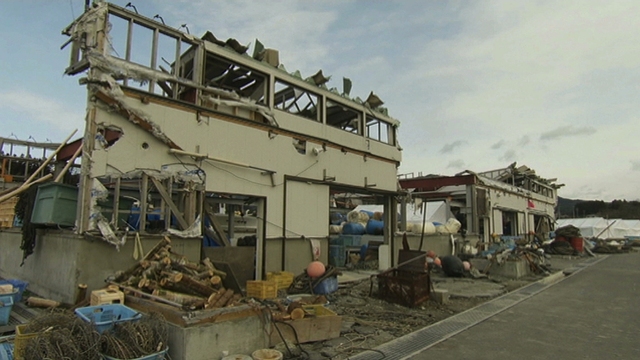After the Tsunami
 On the 11th of March last year Japan's worst ever natural disaster killed almost 20,000 people. This report reveals the controversy surrounding it and the pain of rebuilding under the fear of radioactivity.
On the 11th of March last year Japan's worst ever natural disaster killed almost 20,000 people. This report reveals the controversy surrounding it and the pain of rebuilding under the fear of radioactivity.
Around the world the Japanese were praised for dealing with the March 11 earthquake with stoicism and patience. But one year on and there is still an arduous struggle for reconstruction that prevents people from returning their lives to normality. While the government promises that the country's situation is under control, the poor handling of the crisis and widespread misinformation has lead to a lack of trust and fears about radioactive contamination. "Contaminated food is entering the markets throughout Japan. For me this is quite frankly, very worrying", says a Japanese radiation expert. An increasing number of people don't trust official data and in cities like Tokyo there is a palpable, but often unspoken sense of fear. "The scientists say there is no reason for concern. I would like to believe this but I still worry that the situation could become even worse." As a proud nation, Japan watched several cherished myths crumble on that fateful day in March, not least the safely of its nuclear power plants. Japan now faces a crucial choice: suppress the events of 2011 or learn from them.
FULL SYNOPSIS

